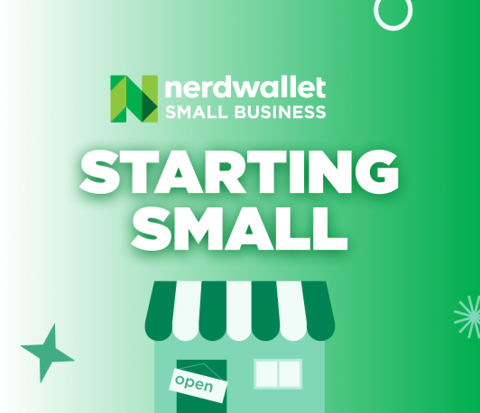Business Credit Scores: What They Are, How to Check Yours
Business credit scores tell lenders and suppliers how likely you are to repay them in a timely fashion.

Many, or all, of the products featured on this page are from our advertising partners who compensate us when you take certain actions on our website or click to take an action on their website. However, this does not influence our evaluations. Our opinions are our own. Here is a list of our partners and here's how we make money.
Business credit scores essentially grade your company on its ability to pay back debt. They let others know how risky it might be to work with you.
Having good business credit is important, but knowing where you stand is tricky. You may have more than a dozen business credit scores across three business credit bureaus. Each has its own range and scoring models.
Here’s how to find your business credit scores and understand what they mean.
💻 How I wrote this article
To expand my knowledge of business credit, I interviewed the following people. You'll see their insights cited throughout this page:
- Gerri Detweiler, a business credit expert at Nav.
- Sri Kaza, former CEO at BriteCap Financial.
- Paul Cheetham, founder of M&A firm Vanla Group.
- Dan Partika, a senior sales manager at NerdWallet Small Business.
Note: Nav and BriteCap Financial have business relationships with NerdWallet as of this writing. I have no involvement in those relationships and did not discuss their details with these sources. Here's our editorial independence policy.
What is a business credit score?
In general, business credit scores rate a company's ability to pay suppliers and creditors on time. Commercial credit bureaus make these evaluations via factors like:
- Your payment history to creditors and vendors.
- The size and age of your company.
- Age of your oldest financial account.
- Credit utilization.
- Established trade lines.
- Risk of failure in your industry.
- Prior judgements, like tax liens and bankruptcies.
Each business can have multiple business credit scores that evaluate it in different ways.
Who issues business credit scores?
There are three primary reporting agencies for business credit reports and scores. Select a bureau to jump to more information about its specific scores:
All three credit bureaus use information from the Small Business Financial Exchange. The SBFE doesn’t issue credit reports or scores. It just collects and supplies lending and repayment details.
The SBFE gets its data from commercial banks and business credit card issuers. The three business credit bureaus combine those details with information from public records, trade accounts and more. LexisNexis, a data company with its own business credit scoring model, also uses SBFE data.
The Fair Isaac Corp. (FICO) has a business credit scoring model, too. FICO is best known for personal credit scores. But their business credit scoring model, the FICO SBSS , is important when you apply for an SBA 7(a) loan. FICO bases its score on data collected by the other credit reporting agencies.
How do you check your business credit scores?
You aren’t entitled to view your business credit report the way you are with your personal credit report. But you can see some information for free.
Processes for finding that information vary by bureau — and even by score within each bureau. For instance, you can see some Dun & Bradstreet scores for free but have to pay for others.
🤓 Nerdy Tip
All information from your business credit reports is available to any customer who pays for it. That includes you as well as other people. Potential lenders and business partners may check your business credit report. You can do the same for other companies. Do you need to check all your business credit scores?
Each bureau’s assessment of your business’s financial health should be broadly similar. But you should probably still keep an eye on each.
Individual reports may include information from different sources. And lenders and potential business partners can choose to use any of them, or any combination of them, when evaluating your company.
Dun & Bradstreet business credit details
Dun & Bradstreet is a longstanding business credit bureau. Every business in its database gets a unique identification number (a DUNS number). D&B encourages vendors to report on how consistently their clients pay bills on time. Unlike the other bureaus on this list, D&B does not deal with personal credit.
Here’s what a D&B business credit report looks like.
What are Dun & Bradstreet’s business credit scores?
D&B business credit scores include the following.
- PAYDEX score (1 to 100): Higher is better. Scores of 80 or higher are considered low risk, scores of 50 to 79 indicate moderate risk, and lower scores equal high risk of late payment.
- Failure score (1 to 5): Lower is better. A higher score means D&B thinks your business is at higher risk for bankruptcy or business closure within 12 months.
- Delinquency Predictor Score (1 to 5): Lower is better. A lower score equals lower risk for seriously late payment (91-plus days) or bankruptcy.
- Supplier Evaluation Risk Rating (1 to 9): Lower is better. This score estimates how likely it is that a supplier will go out of business within the next year.
- Maximum Credit Recommendation. This helps potential lenders decide how large of a loan it can realistically pay back. D&B recommends a dollar amount based on the size, industry and payment history of a business.
- D&B Rating. This is another creditworthiness rating. It includes two different figures. The first ranges from HH at the low end to 5A at the high end. It measures your company’s net worth. The second scale ranges from 1 to 4 and evaluates your company’s creditworthiness. The best rating is 1.
D&B has several other scores. You can access them if you buy your business credit report or subscribe to one of D&B’s services, like the Subscriber Intelligence or Compliance Intelligence databases.
How to check your Dun & Bradstreet business credit
You can check some Dun & Bradstreet credit scores for free if you have a DUNS number. (Don't have one? You can apply for free on D&B’s website and receive one within 30 days.)
Free D&B scores are:
- PAYDEX score.
- Failure score.
- Delinquency Predictor Score.
- Supplier Evaluation Risk Rating.
The free Dun & Bradstreet business credit report includes summaries of legal events, business operations, payment history and financial ratios. It also notes when other businesses access your business credit report.
You can pay for additional ratings (like Maximum Credit Recommendation) and ongoing credit monitoring. Dun & Bradstreet’s Basic plan costs $49 per month and its Plus plan is $149 per month. Annual subscriptions are also available.
Subscribe for grant opportunities, product recommendations and no-nonsense advice from the Nerds.
SUBSCRIBE FOR FREE 
Experian business credit details
Experian collects data on both personal and business credit. You may have seen your personal credit report from Experian before. Here’s what an Experian business credit report looks like.
What are Experian’s business credit scores?
Experian’s CreditScore report includes:
- Business credit score (1 to 100): Higher is better. The higher the score, the lower the risk of serious payment delinquencies.
- Financial stability risk rating (1 to 5): Lower is better. A lower score is better because it represents a lower risk for default or bankruptcy in the next 12 months.
How to check your Experian business credit
Experian does not offer a free business credit report.
You can buy your CreditScore report for $49.95. This report includes your business credit score, financial stability risk rating, payments trends and account histories.
You can also subscribe to Business Credit Advantage for $199 per year. That gets you unlimited access to your Experian CreditScore report, plus alerts and ongoing monitoring.
Equifax business credit details
Like Experian, Equifax is a data company that reports on both personal and business credit. Here’s what an Equifax business credit report looks like.
What are Equifax’s business credit scores?
Equifax business credit scores include:
- Payment index (0 to 100): Higher is better. A score of 90 or better indicates bills paid on time.
- Credit risk score (101 to 992): Higher is better. This score assesses how likely your business is to become severely delinquent on payments. The lower your score, the higher Equifax thinks your risk is.
- Business failure score (1,000 to 1,880): Higher is better. This score measures the likelihood of your business closing within a 12-month period. A lower score equals a higher probability of business failure.
How to check your Equifax business credit
Equifax sends users to a third-party service, eCredable, to buy business credit reports. They cost $49.95 each.
FICO SBSS business credit details
Your FICO SBSS score is important if you want an SBA 7(a) small loan, which is $500,000 or less. The SBA sets the minimum FICO SBSS score for these business loans at 165. Preferred lending partners may approve applications with scores below that threshold.
The scale is:
- FICO SBSS score (0 to 300): Higher is better. The higher the score, the less risk your business presents to lenders.
Your personal credit reports affect your FICO SBSS score, too. It may be hard to get a strong score if your personal credit history is lacking.
FICO SBSS scores are not publicly available. You can get a sense of where you stand by review your other business credit scores, along with your personal credit. If those scores are in good shape, your FICO SBSS score probably will be.
Why your business credit scores matter
Your business credit scores measure how easy or difficult it is to do business with your company. That’s important for signing contracts, taking out business loans and more.
Here are some times when business credit scores may have an impact.
Working with a new company
Your business credit impacts potential business partners because it measures your reliability.
For example: You place an order for raw materials from a supplier you haven’t worked with before. The supplier will send you your materials, along with an invoice for payment due in 30 days.
That’s risky for the supplier since they don’t know you or your business. If you don’t pay your invoice, the supplier will have cash flow problems.
That supplier could check your business credit before signing a contract. If your credit history is solid, that’s a vote of confidence in favor of your company. But if the supplier sees reports of nonpayment, they might decide not to work with you.
Evaluating a business opportunity
You can do the same thing with your potential business partners. If you notice red flags in their business credit reports, you may reconsider the relationship.
If you’re buying a business, for example, the credit report will show you if it hasn’t been paying its taxes. That could make it very hard to get financing for the purchase.
In general, credit reports speak to a business owners’ reliability. If a credit report tells you something that the business owner left out, that might inspire you to dig deeper before you commit to a deal.
Borrowing money
Potential lenders generally check your business credit to make sure your business is real. Your credit report will also reveal obvious red flags, like active liens or judgements against you. (If a lien still shows up for a loan you’ve paid off, contact your lender and ask them to remove the UCC filing.)
After that, your cash flow, time in business and potential collateral are generally more important to lenders than your business credit score. You may even qualify for financing on the strength of your personal credit alone.
But your business credit can still influence your loan size, interest rate and how long you have to pay it back.
Do personal credit scores affect business credit scores?
In general, it’s possible to have strong personal credit and thin or poor business credit (or vice versa). Your personal credit score typically doesn’t affect your business credit score. The FICO SBSS is a key exception.
But personal and business credit are linked in other ways.
Some of the simplest options to get business credit — like opening a business credit card — require excellent personal credit. That's because credit cards typically require a personal guarantee. Lenders use your personal credit reports to help evaluate whether you can keep that promise.
Can you get financing without business credit?
Many business loan applicants use both their personal and business credit scores. If you only use one, personal credit is much more common.
The most recent data from the Federal Reserve Bank’s annual Small Business Credit Survey found:
- 48% of business loan borrowers applied using both their personal and business credit.
- 40% of borrowers applied using only their personal credit.
- 12% applied using only their business credit.
If your personal credit score is in the bad or fair ranges (FICO scores of 669 or below), make a plan to improve it. Better personal credit will make it easier to grow your business credit score in the future.
You may still be able to qualify for financing if you have strong business credit, but iffy personal credit. You’ll probably have a harder time, though.
Article sources
NerdWallet writers are subject matter authorities who use primary,
trustworthy sources to inform their work, including peer-reviewed
studies, government websites, academic research and interviews with
industry experts. All content is fact-checked for accuracy, timeliness
and relevance. You can learn more about NerdWallet's high
standards for journalism by reading our
editorial guidelines.
- 1. U.S. Small Business Administration. 7(a) loan program. Accessed Aug 26, 2025.
- 2. Rosalie Murphy, NerdWallet. Interview with Gerri Detweiler. Accessed Aug 21, 2025.
- 3. Rosalie Murphy, NerdWallet. Interview with Paul Cheetham. Accessed Aug 22, 2025.
- 4. Rosalie Murphy, NerdWallet. Original interview with Sri Kaza. Accessed Aug 22, 2025.
- 5. Fed Small Business. 2020 Report on Employer Firms: Based on the 2019 Small Business Credit Survey. Accessed Aug 20, 2025.
On this page
- Starting Small: A newsletter to get your business off the ground
- What is a business credit score?
- Who issues business credit scores?
- How do you check your business credit scores?
- Do you need to check all your business credit scores?
- What are Dun & Bradstreet’s business credit scores?
- How to check your Dun & Bradstreet business credit
- What are Experian’s business credit scores?
- How to check your Experian business credit
- What are Equifax’s business credit scores?
- How to check your Equifax business credit
- Why your business credit scores matter
- Do personal credit scores affect business credit scores?
- Can you get financing without business credit?





